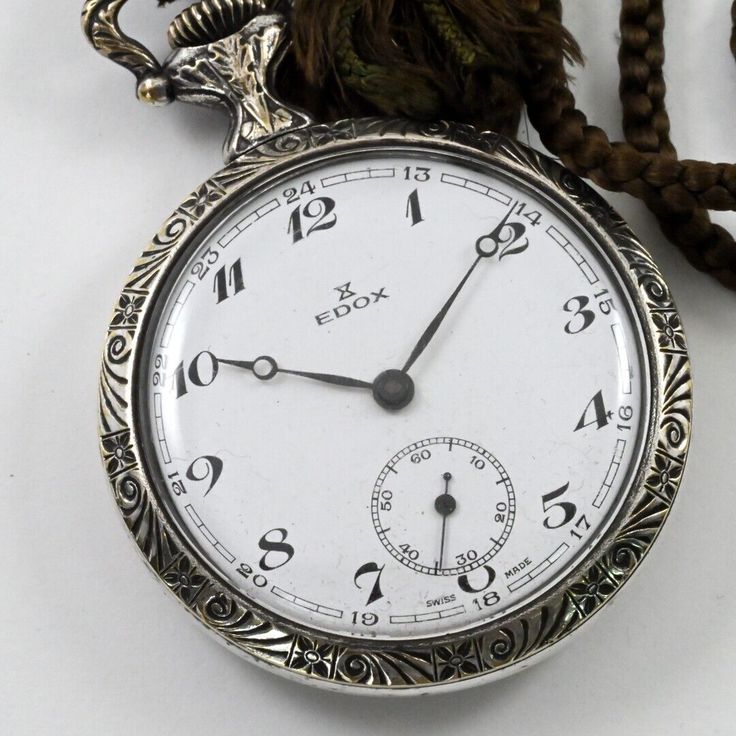
The Timeless Appeal of Mechanical Watches
Mechanical watches captivate enthusiasts and collectors alike, driven by their mesmerizing craftsmanship and undeniable charm. Even in an era where digital gadgets dominate, the timeless appeal of mechanical watches refuses to fade. These intricate devices reflect not only technical mastery but also artistic expression. Each tiny component serves a purpose, coming together in a dance of precision. Consequently, wearing a mechanical watch becomes more than simply telling time—it’s about heritage, luxury, and personal style. If you’ve ever admired the ticking heart of a mechanical timepiece, you’ve witnessed a marvel of human ingenuity. Let’s delve deeper into the timeless appeal of mechanical watches and discover why their allure endures through the ages.
Understanding the Timeless Appeal of Mechanical Watches
Mechanical watches possess a unique soul, setting them apart from modern digital counterparts. Unlike quartz watches powered by batteries, mechanical watches rely on a network of gears, springs, and levers. This complex assembly transforms stored energy into precise timekeeping. For many, owning a mechanical watch feels like owning a piece of history. Every tick echoes centuries of horological innovation. Moreover, the timeless appeal of mechanical watches lies in the connection between wearer and machine. Wind the crown, and you engage directly with the mechanism. As a result, mechanical watches foster appreciation for both engineering and artistry, making them cherished companions.
The Craftsmanship Behind Mechanical Watches
Part of the timeless appeal of mechanical watches stems from their exquisite craftsmanship. Master watchmakers devote countless hours assembling delicate components by hand. Each movement, often visible through a transparent case back, showcases intricate decoration. Techniques like perlage, Geneva stripes, and anglage elevate even hidden parts to works of art. Moreover, brands often pursue mechanical innovation, producing complex features such as tourbillons, perpetual calendars, or minute repeaters. Enthusiasts admire this blend of precision and aesthetics. Thus, mechanical watches become tangible evidence of human skill. The meticulous care infused into each piece explains why collectors treasure them and why their allure remains unmatched.
The History Enhancing the Timeless Appeal of Mechanical Watches
Mechanical watches trace their roots back centuries, embodying a rich narrative that fuels their timeless appeal. In the 16th century, European craftsmen transitioned from clocks to portable timepieces. Innovations flourished, and watchmakers refined movements, cases, and escapements. By the 18th and 19th centuries, renowned Swiss and German houses emerged, establishing benchmarks in quality. During the 20th century, mechanical watches symbolized progress and sophistication. Even after quartz technology disrupted the industry in the 1970s, enthusiasts rallied to preserve mechanical watchmaking traditions. Therefore, each mechanical watch carries historical significance. Owning one connects the wearer to generations of innovation and artistry.
Why Collectors Value the Timeless Appeal of Mechanical Watches
Collectors pursue mechanical watches for numerous reasons that go far beyond practicality. Firstly, mechanical timepieces often appreciate in value, especially limited editions or vintage models. Scarcity and brand prestige boost their desirability. Secondly, enthusiasts value the mechanical complexity, finding joy in studying movements and complications. Additionally, mechanical watches serve as conversation starters, reflecting taste and personality. The timeless appeal of mechanical watches also stems from their emotional resonance. People often mark milestones—graduations, weddings, promotions—with these cherished pieces. Therefore, collecting mechanical watches merges passion, investment, and personal storytelling, solidifying their place as prized possessions.
The Timeless Appeal of Mechanical Watches in Modern Fashion
Mechanical watches maintain a vital role in contemporary style, underlining their timeless appeal. Despite smartwatches offering high-tech features, many individuals choose traditional timepieces for their elegance. A well-crafted mechanical watch complements formal attire, adding sophistication to any outfit. Even casual looks benefit from the subtle statement a luxury watch makes. Celebrities, influencers, and business leaders often display mechanical watches as status symbols. Moreover, many fashion houses collaborate with watchmakers, merging haute couture with horology. As a result, mechanical watches remain relevant, proving that classic designs never go out of style. They stand as both fashion accessory and mechanical marvel.
How Mechanical Watches Inspire Emotional Connections
Another layer contributing to the timeless appeal of mechanical watches lies in their emotional significance. Often, these watches become heirlooms passed down through generations. Each scratch, patina, or engraving tells a unique story. People associate mechanical watches with personal memories, like weddings, anniversaries, or life achievements. Unlike disposable gadgets, mechanical timepieces age gracefully, acquiring character over time. Furthermore, winding a watch becomes a ritual, fostering a daily connection between the wearer and the object. This emotional bond elevates mechanical watches beyond mere tools, transforming them into intimate companions that accompany life’s journeys, trials, and celebrations.
Sustainability and the Timeless Appeal of Mechanical Watches
Sustainability has become a significant factor in consumer decisions, and mechanical watches align beautifully with eco-friendly values. Unlike quartz or smartwatches, mechanical timepieces require no batteries and produce minimal electronic waste. Many watches crafted decades ago still function flawlessly, emphasizing durability and longevity. This enduring quality strengthens the timeless appeal of mechanical watches. People increasingly value products designed to last generations, reducing consumption and environmental impact. Additionally, numerous watch brands now implement sustainable practices, such as responsibly sourced metals and ethical manufacturing. Thus, choosing a mechanical watch often reflects a conscious lifestyle, merging luxury with environmental awareness.
The Timeless Appeal of Mechanical Watches and Technological Innovation
While mechanical watches embody tradition, they’re far from stagnant. Innovation fuels their ongoing evolution, enhancing their timeless appeal. Modern materials, such as silicon components, improve accuracy and resistance to magnetic fields. Brands experiment with advanced alloys to increase durability and reduce friction. Meanwhile, contemporary manufacturing techniques enable greater precision. Despite technological progress, watchmakers preserve traditional aesthetics, balancing heritage with advancement. Innovations like new escapements or revolutionary winding systems captivate horology enthusiasts. Therefore, mechanical watches remain dynamic and relevant, showcasing how ancient craftsmanship coexists with cutting-edge technology. Their ability to evolve underscores why they continue attracting loyal admirers.
The Economic Value of the Timeless Appeal of Mechanical Watches
Mechanical watches often represent substantial financial value, adding another dimension to their timeless appeal. Certain models from brands like Rolex, Patek Philippe, or Audemars Piguet consistently increase in market price. Factors such as rarity, provenance, and condition influence investment potential. Additionally, the booming pre-owned market has spotlighted mechanical watches as viable assets. Investors recognize that high-quality watches can serve as alternative investments, diversifying portfolios. However, passion should guide collecting, not merely financial speculation. Ultimately, mechanical watches combine aesthetic beauty, historical significance, and monetary worth. Thus, they appeal to both watch lovers and savvy investors seeking tangible, wearable assets.
The Timeless Appeal of Mechanical Watches in Pop Culture
Pop culture frequently amplifies the timeless appeal of mechanical watches. Films, television, and literature showcase these timepieces as symbols of class and sophistication. Iconic characters—from James Bond to Don Draper—wear signature watches that enhance their personas. Music stars, athletes, and actors often flaunt high-end mechanical watches, fueling brand popularity. Moreover, social media platforms allow enthusiasts to share their collections, sparking global conversations. Mechanical watches frequently feature in fashion magazines, auction catalogs, and collector forums. This visibility keeps them culturally relevant. Therefore, their association with luxury, status, and artistry ensures mechanical watches remain highly desirable in modern society.
Key Brands Defining the Timeless Appeal of Mechanical Watches
Several luxury brands contribute significantly to the timeless appeal of mechanical watches. Rolex stands as a household name, renowned for durability and prestige. Patek Philippe exudes elegance and tradition, creating watches passed down through generations. Audemars Piguet captivates enthusiasts with bold designs and technical mastery, such as the Royal Oak. Meanwhile, Omega boasts precision, earning fame through associations like the Moonwatch. Brands like Jaeger-LeCoultre, Vacheron Constantin, and A. Lange & Söhne elevate craftsmanship to art. Each brand brings unique DNA, inspiring loyalty and admiration. Thus, brand legacy remains central to why mechanical watches retain their enduring charm.
The Future of the Timeless Appeal of Mechanical Watches
The future looks promising for mechanical watches, reinforcing their timeless appeal. While smartwatches thrive in the tech world, mechanical watches remain irreplaceable for their artistry and emotional resonance. Younger generations increasingly appreciate craftsmanship, sustainability, and heritage. Brands continue innovating, exploring new materials and designs while honoring traditions. Collectors, fueled by social media and global communities, keep mechanical watches in the spotlight. Auction results demonstrate sustained market interest, with record-breaking sales occurring regularly. Therefore, mechanical watches stand poised to endure and evolve. They will likely continue fascinating people who seek beauty, precision, and the human story ticking beneath the dial.
Conclusion: Embrace the Timeless Appeal of Mechanical Watches
The timeless appeal of mechanical watches transcends utility, offering artistry, heritage, and emotional value. Each piece represents centuries of innovation, meticulous craftsmanship, and personal expression. Whether you’re a collector, investor, or someone seeking a meaningful accessory, mechanical watches deliver enduring joy. They connect generations, inspire conversations, and serve as wearable works of art. Owning a mechanical watch isn’t merely about tracking minutes and hours—it’s about embracing history, style, and passion. Don’t wait to discover your perfect timepiece. Dive into the world of mechanical watches today and experience the magic of tradition and precision ticking on your wrist.
Frequently Asked Questions About the Timeless Appeal of Mechanical Watches
What makes mechanical watches different from quartz or digital watches?
Mechanical watches use intricate gears and springs, powered by manual winding or automatic movements. In contrast, quartz watches run on batteries, while digital watches rely on electronic circuits. Mechanical watches emphasize craftsmanship and tradition.
Why are mechanical watches considered timeless?
Mechanical watches represent centuries of horological history and artistry. Their designs rarely go out of style, and they often become family heirlooms, preserving emotional value across generations.
Are mechanical watches worth the investment?
Yes. Certain mechanical watches appreciate in value, especially those from prestigious brands or limited editions. However, collectors should prioritize passion over pure profit when investing in timepieces.
Do mechanical watches require more maintenance?
Mechanical watches need periodic servicing, typically every three to five years, to maintain accuracy and longevity. Proper care ensures they function for decades or even centuries.
Can mechanical watches be sustainable?
Absolutely. Mechanical watches produce minimal waste since they don’t require batteries and often last for generations. Many brands also adopt sustainable practices in manufacturing

